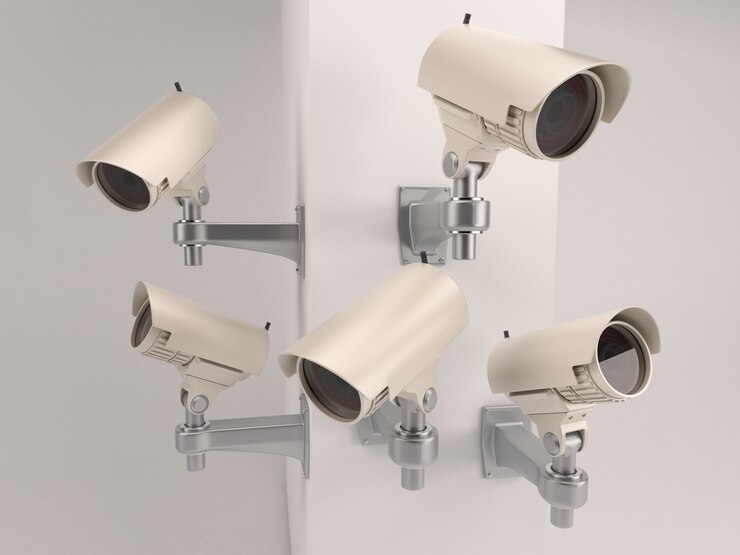CCTV cameras provide increased security and surveillance, deterring criminal activity and aiding in the investigation of incidents. However, their use raises privacy concerns and may lead to a sense of constant monitoring among individuals.
CCTV cameras offer numerous benefits, including enhanced security and crime prevention, making public spaces and properties safer. These cameras also provide valuable evidence for law enforcement and help monitor remote locations. On the downside, CCTV cameras can infringe on privacy rights and create a feeling of being under constant surveillance, leading to concerns about personal freedom.
Understanding the advantages and disadvantages of CCTV cameras is essential for making informed decisions about their use and regulation.
What Are Cctv Cameras?
Closed-circuit television (CCTV) cameras are surveillance devices that are installed for monitoring and recording activities in specific areas. These cameras are widely used in both commercial and residential settings to enhance security and monitor various activities.
Definition And Basic Overview
CCTV cameras are a type of video camera that transmits a signal to a specific place, on a limited set of monitors. The term “closed-circuit” signifies that the signal is not openly broadcast but is instead usually transmitted to a specific set of receivers.
Types Of Cctv Cameras
- Dome Cameras: Dome-shaped cameras that provide a wide area of view and are often used in indoor settings.
- Bullet Cameras: Cylinder-shaped cameras that are suitable for outdoor use due to their weather-resistant design.
- PTZ Cameras: Pan-tilt-zoom cameras that have the ability to turn 360 degrees, tilt up and down, and zoom in and out for enhanced surveillance.
- IP Cameras: Internet Protocol cameras that transmit data over an internet network, providing enhanced flexibility in terms of monitoring and recording.

Benefits Of Cctv Cameras
CCTV cameras offer increased security and surveillance, providing a deterrent to criminal activity and aiding in the identification of suspects. They also allow for remote monitoring and real-time alerts. However, concerns about privacy invasion and high costs are some of the disadvantages associated with CCTV cameras.
Crime Deterrent
CCTV cameras act as a powerful crime deterrent, discouraging potential criminals from committing illegal activities. The presence of visible cameras can significantly reduce the risk of theft, vandalism, and other criminal behavior.
Enhanced Security
CCTV cameras provide enhanced security for both residential and commercial properties, offering 24/7 monitoring and surveillance. Their advanced technology enables real-time monitoring, ensuring immediate responses to any security breach.
Monitoring And Surveillance
CCTV systems allow for constant monitoring and surveillance of premises, providing a sense of security and peace of mind for property owners and occupants. The ability to observe and record activities in specific areas enhances overall safety and security measures.
Disadvantages Of Cctv Cameras

While CCTV cameras offer numerous advantages, they also come with their set of disadvantages. It’s essential to weigh both the pros and cons when considering the implementation of security cameras. Understanding the drawbacks of CCTV cameras can help in making informed decisions regarding their usage.
Privacy Concerns
One of the major disadvantages of CCTV cameras is the potential invasion of privacy. CCTV cameras can intrude on individuals’ personal space, and there is a constant risk of personal information being exposed. The placement of cameras in areas where people expect privacy, such as restrooms or changing rooms, can lead to severe privacy violations.
Cost And Maintenance
Implementing a comprehensive CCTV system involves significant upfront costs for purchasing and installing cameras, recording equipment, and monitoring services. Additionally, regular maintenance and upgrades are necessary to keep the system functional. The ongoing expenses for maintenance, servicing, and equipment updates can be a financial burden for businesses and individuals relying on CCTV surveillance.
Potential Misuse Of Footage
Another notable disadvantage of CCTV cameras is the potential misuse of footage. Recorded video can be used for unauthorized surveillance, confidentiality breaches, or manipulation for malicious purposes. This misuse can compromise the security and rights of individuals, eroding trust in the system.
Legal And Ethical Considerations
Legal and ethical considerations play a crucial role in the deployment and use of CCTV cameras. Understanding the regulatory framework and ethical implications is essential for businesses, organizations, and individuals looking to leverage the benefits of CCTV while mitigating potential disadvantages.
Regulations And Compliance
When considering the use of CCTV cameras, it is imperative to adhere to regional and national regulations governing their installation and usage. Compliance with data protection laws, privacy regulations, and specific guidelines set forth by authorities is essential to avoid legal repercussions. Understanding the legal requirements related to signage, data storage, and access control is vital for deploying CCTV cameras in a manner that aligns with the law.
Ethical Implications And Societal Impact
The use of CCTV cameras raises ethical questions regarding surveillance, privacy, and social impact. The potential invasion of privacy for individuals and the broader societal implications of constant monitoring necessitate careful deliberation. Assessing the balance between security and personal liberties is essential to mitigate ethical concerns. Furthermore, understanding the potential impact on public behavior and social trust is critical in evaluating the ethical implications of employing CCTV surveillance.
Frequently Asked Questions For What Are The Benefits And Disadvantages Of Cctv Cameras?
What Are The Main Benefits Of Using Cctv Cameras?
CCTV cameras provide round-the-clock surveillance, deter criminal activity, and offer peace of mind for property owners. They also assist law enforcement in solving crimes and can reduce insurance costs for businesses.
Are There Any Drawbacks To Using Cctv Cameras?
While CCTV cameras offer enhanced security, there are privacy concerns to consider. Additionally, installing and maintaining CCTV systems can be costly, and there may be legal restrictions on where and how they can be used.
How Can Cctv Cameras Contribute To Public Safety?
CCTV cameras can be a valuable tool for monitoring public spaces and deterring criminal behavior. They provide law enforcement with valuable evidence and can help prevent and respond to incidents in real time.
Conclusion
Overall, CCTV cameras offer enhanced security and provide valuable evidence in case of any incidents. However, they can be invasive and raise privacy concerns. It’s important to weigh the benefits and disadvantages when considering their implementation, ensuring proper use and addressing potential drawbacks for a balanced approach to surveillance.
